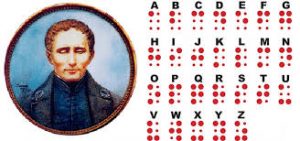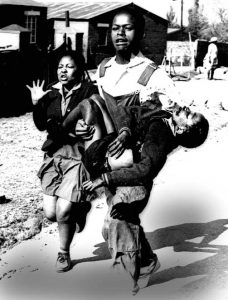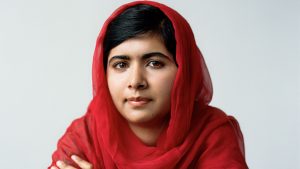Most people think that they cannot change the world.
However, throughout history, we have examples of children who believed the opposite and did things that significantly impacted the lives of millions. So, in honour of International Youth Day, we highlight 7 children who have been role models to people globally by demonstrating courage, wisdom, and expertise in conditions of war, poverty, exploitation, epidemics and more.
Anne Frank: Saw the good in humanity in dark times
“Everyone has inside of him a piece of good news. The good news is that you don’t know how great you can be! How much you can love! What you can accomplish! And what your potential is!” Anne Frank, Diary of a Young Girl
 Anneliese Marie Frank, popularly known as Anne Frank, is one of the most well-known victims of the Nazi Holocaust Born to a German-Jewish family, Anne and her family spent two years hiding in Nazi-occupied Amsterdam in a secret annexe with four other Jews. During this time, from 1942 to 1944, Anne kept a diary where she chronicled her experience but also expressed her continued faith in the goodness of people.
Anneliese Marie Frank, popularly known as Anne Frank, is one of the most well-known victims of the Nazi Holocaust Born to a German-Jewish family, Anne and her family spent two years hiding in Nazi-occupied Amsterdam in a secret annexe with four other Jews. During this time, from 1942 to 1944, Anne kept a diary where she chronicled her experience but also expressed her continued faith in the goodness of people.
“Anne’s father, Otto Frank, was the only occupant of the secret annexe to survive the war. In 1947, he published Anne’s diary as “The Diary of a Young Girl.” Anne’s account of her interment, as well as her deep belief in the good of humanity in the light of atrocities, has become one of the world’s most widely read books. It is a testament to tremendous grace possible within the human spirit.” Katherine Butler, mother nature network
Claudette Colvin: Challenged racism and changed laws

Rosa Parks is probably one of the most renown figures of the African-American civil rights movement of the 1950s and 60s. However, nine months before Rosa Park refused to give up her seat on a bus to a white person, 15-year-old Claudette Colvin had done the same.
“Arrested in 1955, Claudette was a student at Booker T. Washington High School who often took the bus to school. Ultimately, she challenged this law in court in Browder v. Gayle, where “a federal court suit involving Colvin eventually led to a Supreme Court order that outlawed segregated buses.” Katherine Butler, mother nature network
Louis Braille: The inventor who changed lives
 Louis Braille lost his vision at a young age after an accident in his father’s shop. He was then enrolled in the Royal Institute for Blind Youth in Paris, where he went on to invent braille, which is a reading and writing system for the blind. “Although his work was only largely adopted following his death, the method, which uses a system of raised dots, provided people without sight a way to learn to read and write, changing the world for those with eye impairments, leading to higher quality of life for the blind.” Stephanie McBride, The Richest
Louis Braille lost his vision at a young age after an accident in his father’s shop. He was then enrolled in the Royal Institute for Blind Youth in Paris, where he went on to invent braille, which is a reading and writing system for the blind. “Although his work was only largely adopted following his death, the method, which uses a system of raised dots, provided people without sight a way to learn to read and write, changing the world for those with eye impairments, leading to higher quality of life for the blind.” Stephanie McBride, The Richest
Hector Pieterson: An image that fired a movement

The most famous photo from the Soweto Uprising. Mbuyisa Makhubo is carrying the dying Hector Pieterson (13) and Hector’s sister, Antoinette, is running beside him.
On June 16, 1976, about twenty thousand black schoolchildren risked their lives and demanded a better quality education from the apartheid government in South Africa. What ensued next were two weeks of bloodshed, chaos, and loss — hundreds of people were shot and killed, and much more were injured. One of the children killed was 12-year-old Hector Pieterson, and the photographed image of Hector dying, carried by a fellow student was published around the world. This image illustrated the horrors of apartheid to the world and helped strengthen the anti-apartheid movement globally.
“On June 16, 2002, the Hector Pieterson Memorial and Museum was opened near the place he was shot in Orlando West, Soweto to honour Hector and those who died around the country in the 1976 uprising.” Clouds, Listserve
Iqbal Masih: Children facing poverty and exploitation
 At the age of 4, Iqbal Masih was sold to slavery in the carpet industry of Pakistan for the equivalent of 12 USD.
At the age of 4, Iqbal Masih was sold to slavery in the carpet industry of Pakistan for the equivalent of 12 USD.
“Iqbal was held by a string to a carpet loom in a small town called Muridke near Lahore. He was made to work twelve hours per day. Due to long hours of hard work and insufficient food and care, Iqbal was undersized. At the age of 10, he escaped the brutal slavery and later joined a Bonded Labor Liberation Front of Pakistan to help stop child labour around the world, and Iqbal helped over 3,000 Pakistani children that were in bonded labour, escape to freedom. Iqbal gave talks about child labour all around the world.
He was murdered on Easter Sunday 1995. It is assumed by many that he was assassinated by members of the “Carpet Mafia” because of the publicity he brought towards the child labour industry. In 2000, when The World’s Children’s Prize for the Rights of the Child was formed, he was posthumously awarded this prize as one of the first laureates.” Clouds, Listserve
Nkosi Johnson: We are all the same
[embedyt] https://www.youtube.com/watch?v=BS1rJOPDaB0[/embedyt]
At the time of his death in 2001, Nkosi Johnson was the longest- surviving HIV-positive born child in the world. Born in a township east of Johannesburg in 1989 to an HIV-positive mother, Xolani Nkosi was legally adopted by Gail Johnson, when his mother could no longer take care of him.
“The young Nkosi Johnson first came to public attention in 1997, when a primary school in the Johannesburg suburb of Melville refused to accept him as a pupil because of his HIV-positive status. The incident gained national and international coverage, as South Africa’s Constitution forbids discrimination on the grounds of medical status—and the school later reversed its decision.
Nkosi was the keynote speaker at the 13th International AIDS Conference, where he encouraged AIDS victims to be open about the disease and to seek equal treatment.
Nelson Mandela referred to Nkosi as an “icon of the struggle for life.” In November 2005, Gail represented Nkosi when he posthumously received the International Children’s Peace Prize.” Clouds, Listserve
Malala Yousafzai: The right to an education

Unless you live under a rock, you know who Malala Yousafzai is. Born in Mingora, Pakistan, Malala became an advocate for girls’ education as a child. Ultimately, this led the Taliban- who don’t believe in a girl’s right to an education- to issue death threats against her.
“On October 9, 2012, a gunman shot Malala when she was travelling home from school. She survived and has continued to speak out on the importance of education. In 2014 became the youngest person to receive the Nobel Peace Prize.” Biography.com Editors, The Biography.com website
We are so strong
[embedyt] https://www.youtube.com/watch?v=mN561v2o2V4[/embedyt]
Too often, we tell children that they have to wait to be adults to do great things with their lives. Their younger years are seen as a time to study and get prepared for when ‘real life’ begins in adulthood. However, there are millions of kids worldwide who live in situations that force them to grow up quickly and make decisions that even grown-ups would struggle with. The thing is, kids no matter their age, race, gender, sexual orientation, socioeconomic background and more, are capable of doing great things and showing courage, innovation, and resilience in times of crisis. So let’s celebrate the strength of the youth and also continue to support them by creating environments in which they can thrive. As the song above says, ‘we are so strong’.
















